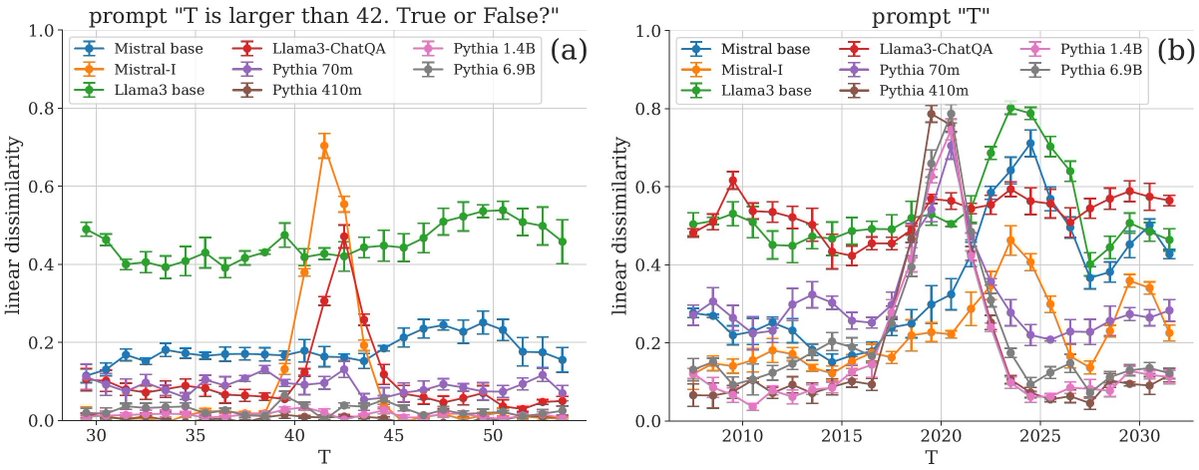
Julian Arnold
@julian__arnold
Followers
368
Following
3K
Statuses
35
Physics PhD Candidate @UniBasel 🇨🇭
Basel, Switzerland
Joined February 2022
RT @QuantMol: 📚 Our book "Machine Learning in Quantum Sciences" — a guide to the AI revolution in quantum physics — is coming soon! 🚀 🤖 Thi…
0
18
0
RT @MolecularRobot: [beware, Tweet contains PhD and postdoc openings] Are you interested in research at the intersection of (interpretable…
0
10
0
Check out with @FlemmingHoltorf & @_Frank_Schaefer (@MIT_CSAIL) and Niels Lörch (@UniBasel): Leveraging tools from physics, we analyze phase transitions in LLMs. These mark abrupt changes in behavior as prompt, training epoch, or temperature are varied.
1
10
43
@UniBasel @MIT @MIT_CSAIL This helps us to understand the limitations and strengths of such methods when applied to different classes of phase transitions, improves their performance via key modifications, and suggests the methods' usage as generic algorithms for approximating the Fisher information. 3/
0
0
2
@UniBasel @MIT @MIT_CSAIL We prove that machine-learned indicators of several popular methods approximate the square root of the system's (quantum) Fisher information from below -- a quantity that is known to indicate phase transitions but is often difficult to compute from data. 2/
0
0
2
@_Frank_Schaefer @MIT @MIT_CSAIL @UniBasel We propose a faster implementation of the learning-by-confusion scheme for detecting phase transitions: by using a K-class classifier compared to K binary-class classifiers we achieve speedups on the order of K due to feature transferability (K = # split points in param space).
0
0
5
RT @carrasqu: I have been appointed an associate professor of computational physics at @ETH_physics. I'll have PhD and postdoc positions, s…
0
74
0
My talk at the #JuliaCon 2023 on ``Differentiable isospectral flows for matrix diagonalization'' is now online Check it out!
0
1
19
@UniBasel @MIT @MIT_CSAIL In practice, one often has direct access to a description of the physical system in terms of such models. Our novel generative approach to phase-classification problems can utilize this information which allows one to bypass explicit data-driven training. 5/5
0
0
2
@UniBasel @MIT @MIT_CSAIL Such generative models are ubiquitous in statistical and quantum physics encompassing, e.g., mean-field descriptions, tensor networks, and machine-learning inspired ansatzes, such as autoregressive networks or transformers. 4/5
0
0
2
@UniBasel @MIT @MIT_CSAIL We demonstrate that phase-classification tasks can also be solved using generative classifiers that are based on probabilistic models of the measurement statistics underlying the system. 3/5
0
0
2
@UniBasel @MIT @MIT_CSAIL The problem of mapping out a phase diagram can be cast as a classification task. Typically, these phase-classification tasks are tackled by training a discriminative classifier, such as a convolutional neural network, in a data-driven manner. 2/5
0
0
2

